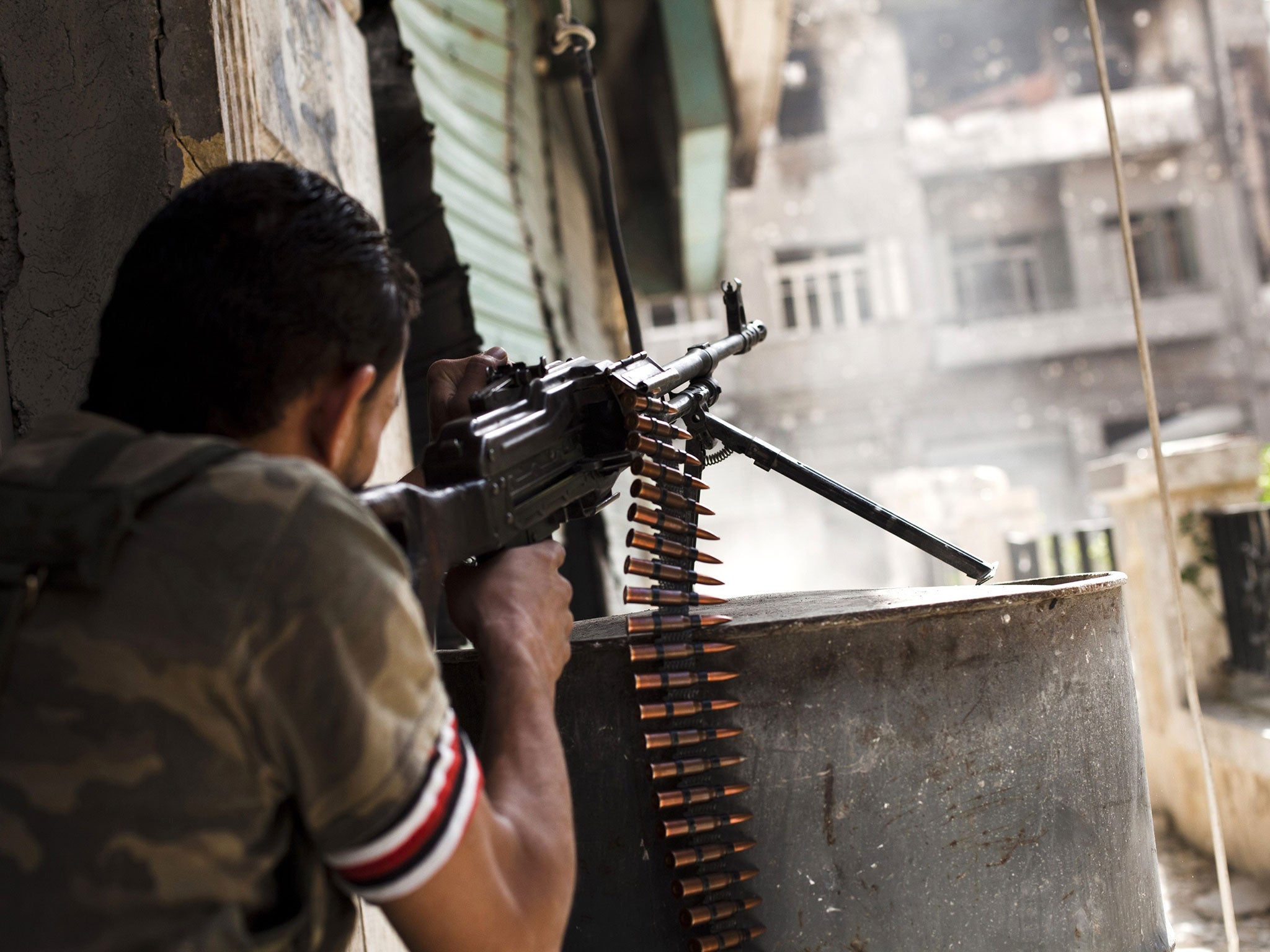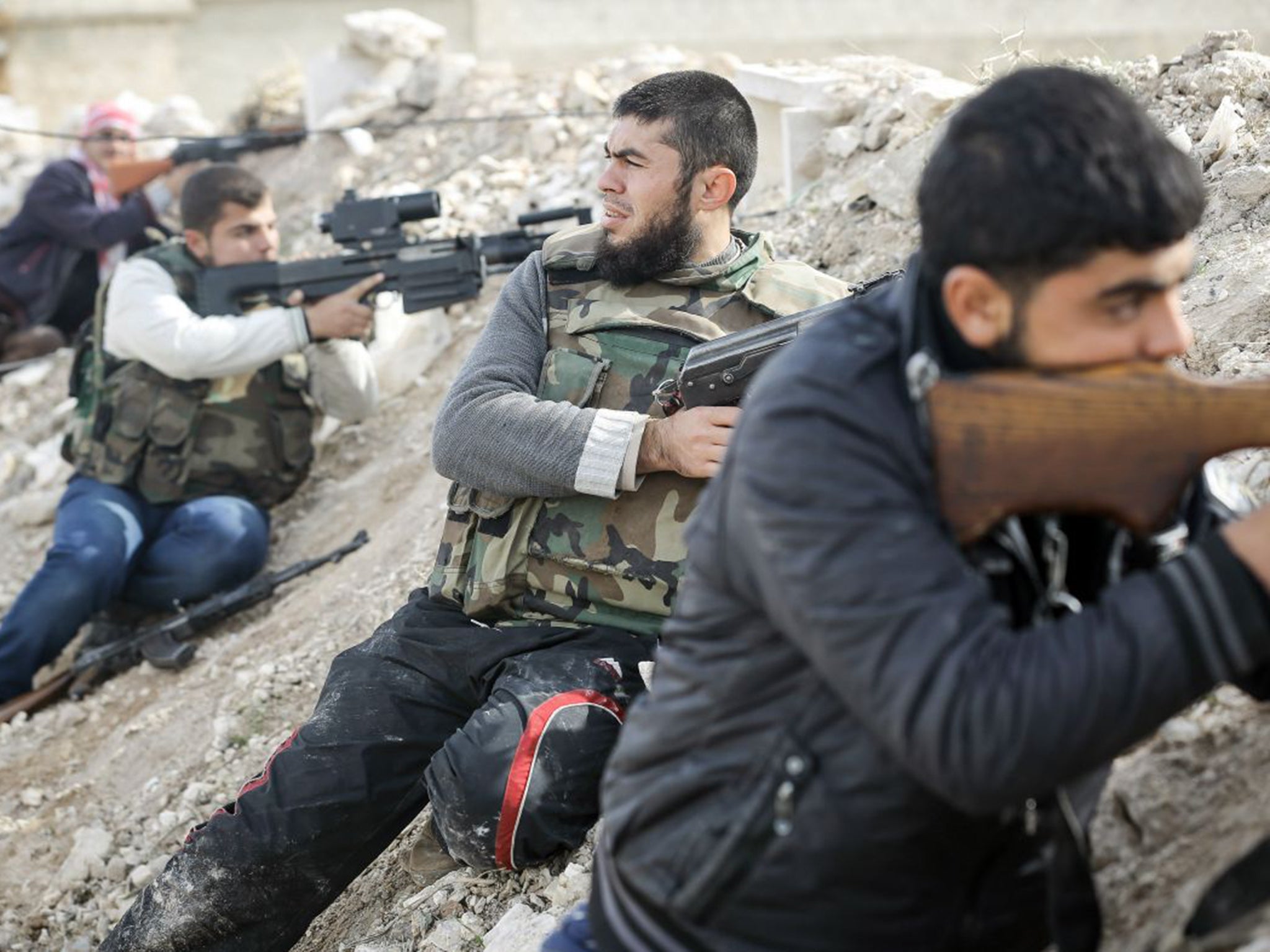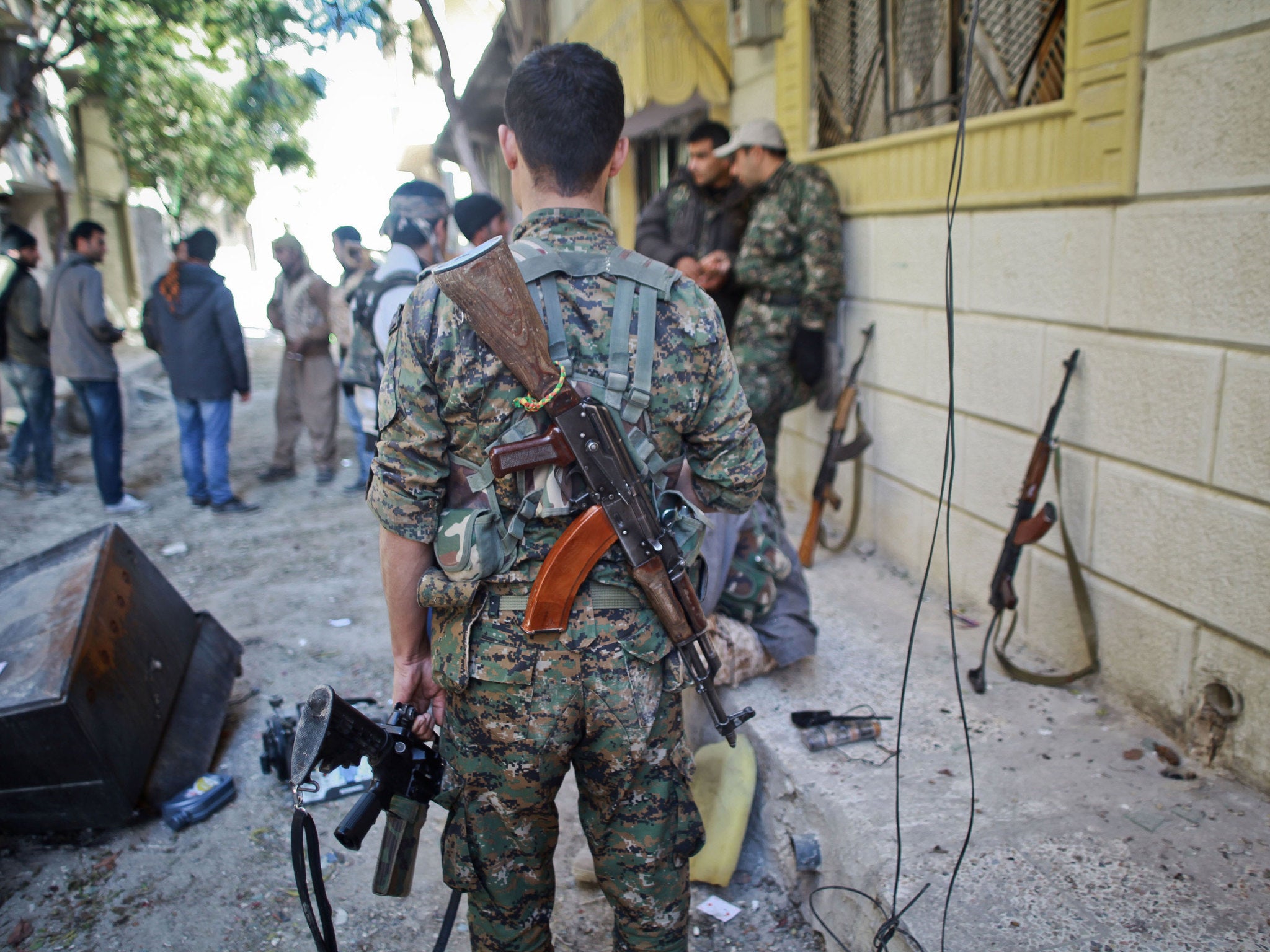How many 'moderate' ground troops are there in Syria – and are they strong enough to defeat Isis?
The Prime Minister may have his 70,000 number correct - but that's about all

Your support helps us to tell the story
From reproductive rights to climate change to Big Tech, The Independent is on the ground when the story is developing. Whether it's investigating the financials of Elon Musk's pro-Trump PAC or producing our latest documentary, 'The A Word', which shines a light on the American women fighting for reproductive rights, we know how important it is to parse out the facts from the messaging.
At such a critical moment in US history, we need reporters on the ground. Your donation allows us to keep sending journalists to speak to both sides of the story.
The Independent is trusted by Americans across the entire political spectrum. And unlike many other quality news outlets, we choose not to lock Americans out of our reporting and analysis with paywalls. We believe quality journalism should be available to everyone, paid for by those who can afford it.
Your support makes all the difference.David Cameron has come under fire for declaring in Parliament that there are 70,000 “moderate” rebels in Syria, ready to fight Isis on the ground if Britain starts bombing the militant group from the sky.
That number was set to form a key part of the debate in the Commons that will decide whether or not the UK goes to war – or at least extends its war from across the border in Iraq. So does it add up?
Yes, there are 70,000 fighters
The Prime Minister has, whether he intended to or not, conjured up the image of a force of 70,000 ready to join forces with Britain and the rest of the international coalition and take the fight to Isis in Raqqa and beyond.
Charles Lister, of the Brookings Institute in Doha, has studied Syria’s opposition forces since 2011 and laid out, with what he says is some confidence, a map of 65,000-75,000 “moderates” ready to do business with the UK and others.
They include, he says, the Southern Front, a loose alliance operating around Damascus with an estimated manpower of 25,000, the Northern FSA with 20,000 near Idlib, and a wealth of other groups surrounding Aleppo with somewhere approaching 14,000 men.
But this is no army
While it may have numbers approaching 70,000, it has become increasingly clear that the “moderate” Syrian opposition to Assad and Isis is so loosely held together as to barely exist.
“The number is correct,” Chatham House’s expert Ghadi Sary told the BBC News Channel on Tuesday. “But the problem is that they are split into a hundred factions, and they are also geographically spread across Syria.
“They are not congregated under one command. It is not an army of 70,000, it is 70,000 armed men who are fighting Assad and who are not radical fighters, but that is not enough to say there is an army of 70,000 people who would support that effort.”
And just how moderate are they really?
Mr Lister says the groups he has in mind fit the US bill as “moderates”. He says: “This means they are explicitly nationalist in terms of their strategic vision; they are local in terms of their membership; and they seek to return to Syria’s historical status as a harmonious multi-sectarian nation in which all ethnicities, sects and genders enjoy an equal status before the law and state.”
But even the factions that have been vetted by the CIA are enmeshed in alliances with groups which, under any definition of the term, would be seen as extremists.
External attempts to train such groups up under a new banner have resoundingly failed – when the US tried to do so it ended up with just four “moderate” fighters – individual fighters – in Syria at a cost of $500m.

Writing in this newspaper, Robert Fisk says he doubts “if there are 700 active “moderate” foot soldiers in Syria – and I am being very generous, for the figure may be nearer 70 – let alone 70,000’.
“Besides, aren’t the ‘moderates’ supposed to be the folk who don’t carry weapons at all? Who’s ever heard before of a ‘moderate’ with a Kalashnikov?”
So who else is there?
Michael Stephens, from the Royal United Services Institute (Rusi), Doha, says Mr Cameron is trying to put his case in Parliament while ignoring the two forces in Syria that have the best chance of fighting Isis on the ground.
The Kurds, including the YPG but under a wider umbrella movement known as the Syrian Democratic Forces (SDF), count between 40-50,000 troops in their number, Mr Stephens says.

The Syrian regime, meanwhile, has lost some 60,000 troops in the course of its civil war – yet still commands the name number again as the SDF. With its recent gains and the recent recovery of Russia’s downed bomber pilot, it has shown it can work effectively in tandem with international forces.
Yet the experts will not forget the fact that the Assad regime has killed many, many more civilians in its time than Isis ever has – and for Britain and the rest of the West, any alliance remains unpalatable.
What else can be done?
Dr Andreas Krieg, from King’s College’s Department of Defence Studies, says air strikes alone cannot beat Isis – and the construction of a new, viable socio-political body that gives Syrian people an alternative to the militant group (and Assad) is the only way to do so in the long term.
He tells The Independent “moderate Islamists” must be included in a process that sees a force of rebels brought together, vetted, trained and equipped with a view to creating an internationally-backed ground force in six to 12 months.
“The military option to defeat Isis together with the development of a counter-narrative will take time,” he says. “But the longer we wait the worse. The West has wasted nearly five years to fix a problem that could have been jointly solved with regional allies within months in early 2012.
“Now the next decade will be dedicated to fighting the idea of Isis.”
Join our commenting forum
Join thought-provoking conversations, follow other Independent readers and see their replies
Comments